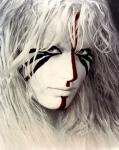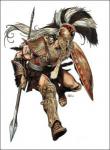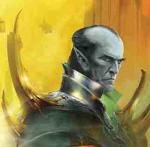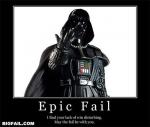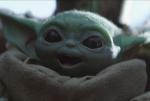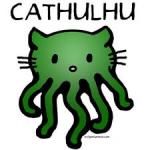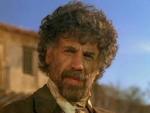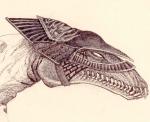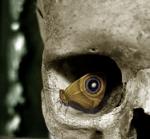Quote
With that said, I have spent the last few days mulling on an exchange I read in one particular thread on the site, and I'm afraid I have a few things to say about it. The discussion in question began with a reader effusively comparing Toll the Hounds and the portrayal of the city of Darujhistan, with Joyce's celebration of Dublin. Needless to say, this is most flattering, and on the question of merit I will of course say nothing. What astounded me, however, was the rapidity with which this thread descended into a personal attack on the reader in question.
If anyone wanted a more precise description of the stigma under which genre writing suffers, you'd be hard-pressed to find it. This wasn't simply a matter of differing opinions. It was as if some invisible line had been crossed, as if the mere notion of including fantasy fiction in the same breath as the great works of fiction by serious (dead) writers, was akin to voicing blasphemy.
When even fans of the genre feel compelled to segregate and denigrate it, should someone be so presumptuous as to compare a genre work with real literature, and to then viciously attack the person in question for their temerity, can only leave a genre writer like me dismayed and also a little angry. Why am I angry? I will explain.
I have read and read widely, and in the process of becoming a writer I have read with an eye to craft: technique, structure, voice, theme, sentence pattern, rhythm, and so on. I have also read with concentration on the more ephemeral perhaps even mysterious aspects of great works of literature. After all, this was how I learned to write, by paying close attention to the best stuff I could find. In fact, I devoured the canon of English literature, both Old and New World. And I have to say, there really is no mystery to such stories and novels there is nothing within them that elevates the authors to some superhuman status to which no mere mortal could hope to reach. And more often than not, from what one can glean from the work itself, the genius (if it can be called that) is found in the comfort of language, in the authority of voice, and in the determined will of the author to make real his or her vision. What I learned is that great works of fiction are drenched in sweat and dripping blood, yet both the sweat and the blood are transformed into something elegant and beautiful.
So, whatever I learned I learned from the best writing I could find, in every genre imaginable. But here's the thing: picture a gathering of writers, say in a pub or bar, and assume that, for some obscure reason, they're actually talking about writers and novels. Now, imagine that in that conversation you hear comments made about Homer, Gilgamesh, Beowulf, The Song of Roland, Chaucer, Keats, Yeats, the Bard, As I Lay Dying, Tim Powers, Cannery Row, Doris Lessing, Orwell, Lord of the Flies, Grendel, Banks, LeGuin, Martin, R.E. Howard, Clancy, Ludlum, Lovecraft .
If you do so happen upon such a conversation, I will guarantee you this: that group of writers is made up of fantasy and science fiction writers; not English Department professors; not contemporary fiction writers either. I should know: I've thrown out all those names and novel titles in those 'literary' companies more than once, and have been met with blank looks or smug disdain (as a curious aside, I once spent a year playing hockey as part of a university's English Department faculty team, and not once was I even asked about my writing: how weird is that?).
The wall we're trying to climb is a solid construction of dense, intellectual snobbery, profound in its impervious rigidity. But then, we know all that; as genre writers we have lived with it all our adult lives.
So, my anger? (and here I pause to take a calming breath) For those who feel the need to attack the delight and excitement of one of my readers, when they discover something in one of my works that speaks to them on unique or surprising levels, next time send your vitriol my way instead. Take your shots at me if you feel the need to do such things: I can weather the storm easily enough, and if you care to argue literature over genre, fine. Let's.
I noted an administrator's intercession, effectively ending the thread, and am well aware that this site works well in terms of forum etiquette. So I'll simply close with a reiteration: to attack one of my readers for the pleasure they received reading one of my novels, is simply not on. God knows what thin skin was punctured, but if the conceit that all opinions are free to their space online is to be held inviolate, then even those opinions a person disagrees with must be respected.
And, to the reader who expressed their joy over Toll the Hounds, well, here's something for you. Shortly after submitting the manuscript to my publishers, I happened to have the opportunity to talk with Steve Donaldson about the novel, and I expressed my sense that this one was going to be problematic. Why? he asked. I said something to the effect that Toll the Hounds was probably my most potentially divisive work yet, and that I felt I was about to drag quite a few readers kicking and screaming into some place they never expected, and that many of them probably wouldn't like it. As it turns out, that was a fair prediction, wasn't it?
But here's the thing. Toll the Hounds is the cipher for the entire series. As an added hint, it begins with voice and intent, and proceeds through to structure and the creative conceit that is story-telling itself. So, you're right in that it's a celebration, but from the first I knew it might well be a private one, or at best one that only a few hundred readers would join in on.
And as Steve said to me, with a shrug: an author does what an author feels has to be done. If there is no challenge, no ambition, no risk of failure, what's the point? I'd like to say he actually said 'fuck 'em' but Steve doesn't say things like that. He is not a crass man (though sometimes I am).
As for the Joyce's Dublin thing even a real city in a real world is transformed by the imagination of a writer of fiction, into something fantastical, magical, into, in fact, a work of art. In that sense anyone else's sense of that city and its history is in fact irrelevant, because what the writer has created is a personal vision. There is no intrinsic artfulness in a pile of bricks, stone, mortar and timber, after all. To write about a city is to reinvent it (another fine example is Helprin's A Winter's Tale, which takes the transformation metaphor about as far as it can get). And in response to this manifestation of the mundane into the sublime a reader is either lifted into that realm to share the wonder, or not. I am so pleased that Toll the Hounds succeeded in lifting at least one reader into that realm what more could an author ask for, if not that?
I imagine that even on my death-bed I will still consider Toll the Hounds to be my finest work (and if that dismays some readers, sorry about that. Well, to be crass, no, not sorry, but to your frustration I will commiserate: after all, we're all familiar with frustration, I'm sure). Even a novel about death and grief can be a celebration of life; it's all down to which side of the coin you choose.
* * *
As an update, I'm well into the tenth novel now. Regarding Dust of Dreams, thank you for your kind comments (those that were kind); and as for those who still found time to complain about all the threads left dangling I suppose I could have reworked my author's note and made it somewhat more explicit. Say, something like this:
'The first reader who reads this work and complains about loose ends, I will personally hunt down and shoot.'
Would that have been clearer?
Now, some other comments on topics under discussion on the site, and then onto your questions.
Yes, the owl was deliberate in each and every instant, and yes, it was intended to work on multiple levels.
The issue of women in the military was something I addressed in more than one interview, giving my reasoning behind it, principally beginning with wanting to create a world without sexism. As for the fitness of women as warriors being dubious, get real. One reader has provided an impressive list of real-world examples to refute such culturally-bound prejudice (and let's not mince words, dress it in terms of muscle mass, testosterone, or whatever, prejudice is precisely what it is).
Now, I'm not writing this stuff intending a dressing down of certain readers who participate on the site. Indeed, please continue to feel free to comment however you like. Just bear in mind that I reserve the same right, so long as this site remains a public one, and every now and then, why, I might weigh in on a topic. As an exercise, wear my shoes for an hour or two you're sitting there, reading praise and admiration and disappointment and even contempt no author in any previous generation has quite had this privileged window into the minds of his or her readers. It's an odd place to be, and if you do try on my shoes for any length of time, you may start seeing what I mean. Oh, and I did not use the word 'privilege' facetiously, for to me it remains a privilege, and the matter of how do I find my way through this potential minefield remains as daunting as ever.
Sindriss : Posted 06 September 2009 - 08:57 PM
Who/what is ruthan gudd and he is some kind of ascendent/powerful older person then how come he joined the malazan army and what is his relationship with greymane?
A: well now, Sindriss, you have to know how I'll reply to these questions. Read on.
What do you think of the balance between philosophical musing and action in DoD compared to previous books? (Very great imo but that is outside the question)
A: we're closing on the end of the series, and this is the first half of a very big novel. How do I usually start off my novels? Characters need to set a context; without all that stuff which some readers find boring or whatever there'd be a weaker emotional impact to all that follows. To me that equation is plain and I'm glad to hear it seems to be for you, too.
I would like to know if Steve have ever tasted anything like the quorl white milk, that knocked the bb's out.
A: Nope, but I gots me a good imagination.
aa
..
amphybian : Posted 06 September 2009 - 11:47 PM
Why did you include so many epigraphs in your writing - poems, scattered fragments of the past (Gotho's Folly), songs, brief but murky visions of the future? Did any epigraphy work on the archaeological digs strike you in a particular way?
A: Curious question. My archaeological digs were primarily on non-literate prehistoric sites; the occasional rock art but interpretation there is highly dubious. The epigraphs gave me an opportunity to explore poetic styles, touch on themes, play with voices, and as you say, nudge aside the veil on other aspects of the Malazan world. I won't claim any originality in that technique (cf Dune, Powers' The Stress of Her Regard, etc).
Do you think that what Shadowthrone/Cotillon/Tavore are trying to do is "better" for the world of Wu than what has gone before?
A: That's for you to decide.
I think Dust of Dreams was the first book in which I felt the Marines assert themselves as distinct personalities that aren't all one-offs of some noble secret-general-in-the-ranks type. The Corabb-Throatslitter-orthen scene really jumped out at me, and came off a lot like a "Black Company" moment. These aren't exactly lovable fuzzballs we're reading about here. Why did you choose to invest so much time in them when the ending of DoD would rather spectacularly eliminate many of these "named characters"?
A: even if a character is to die, is that sufficient excuse to red-shirt them? The problem with such deaths is that they mean nothing, because we know nothing about those people. All too often fantasy novels simply skip over the trauma and pain of the common soldier, being too busy with the princes, warlords and sundry other heroic nobles, to give a shit about the poor sods bleeding and dying at the whim of said heroes. This always irritated me. We still find it in pervasive use, especially in film and television (especially comic book adaptations). Innocent victims die by the truckload, cronies are gunned down without an instant's thought (children with no daddy anyone?). Clearly some lives are meant to be of more worth than others. By the same token, one cannot recount in detail the deaths of every characters in a tale, if that tale involves thousands or tens of thousands of 'extras.' But it is possible to take a cross-section, something representative of those unseen lives. This particular detail is highly relevant to the last novel in this series, by the way,
HoosierDaddy: Posted 07 September 2009 - 08:58 PM
I think you might have answered this before, but: In the history of human empires and kingdoms, armies have been dominated by, and usually solely composed of, male warriors/soldiers. Yet, in the Malazan World, female soldiers seem to be the norm, i.e., the Malazan Empire, the Crimson Guard, Genabackis, and the Letherii Empire. Was it an unconscious decision to so veer away from human history in so doing this, or were you trying to make a point?
See my note above, Hoosier. Indeed I was making a point. I'm still making it. I suspect I might for some readers be making it till I'm blue in the face and six feet under ground.
blackzoid : Posted 07 September 2009 - 10:30 PM
One of DoD's themes was the folly of hanging onto past traditions and the theme of Toll The Hounds was death and redemption. So can we ask SE what the theme of The Crippled God will be about?
A: Heroism.
Abyss : Posted 08 September 2009 - 06:47 PM
1. When TCG is complete you will have written a ten part series spanning dozens of pov characters, millenia of time, multiple races and cultures and beliefs, magic systems, pantheons, worlds, and/or the K'chain S'ink. Was there any element you wish you had included but didn't (another race, another warren, a god with a different aspect, etc)?
A: No matter how many species and cultures there are in a work, in this fantasy world there's always room for more. I don't regret not including some, since the opportunity always remains, doesn't it?
2. Pearl the Claw and Pearl the demon. Coincidence?
A: Yup.
3. The Devil Delivered was an excellent read and a challenging one. Are there any particular themes you would like explore with a similar novel leaning more towards sf than fantasy?
A: I do intend an SF novel some time soon. Don't tell my publishers, though.
- Abyss, ...also, grenfellen ale in a pweter mug... tastes great or less filling...?
A: Can I see that pweter mug you got there?
..
Skywalker : Posted 09 September 2009 - 07:19 AM
Question for SE: In the first few books, the swear words used by the characters were almost exclusively Wu-ian, and rather amusing/ innovative/ paradoxical (Hood's Balls, Beru Fend). But ever since RG or thereabouts (Hedge's "f-ing dragon" comment comes to mind) the language has been more Earthly and earthy, and has jarred at least a few readers... was this conscious? Why did you feel it was necessary?
A: Yeah, it's been commented on. Each time I used 'fuck' I did indeed pause, weighing the merits of its use versus something less 'shocking.' I tried to be as judicious as possible, but sometimes the emotion burning through me simply demanded that jarring effect. See above re: cipher. of
..
Egwene : Posted 10 September 2009 - 06:11 PM
I have a few suggestions - apologies if they have already been answered in other interview
Question one: Steve, in Dust of Dreams (page 107), Bugg talks to Seren Pedac about 'Power' in the context of him suggesting that Kilava might have succeeded where three Elder Gods might have failed.
Quote Bugg: "A conviction I am slowly coming to accept. People do not understand power. [...........] Presence, Aquitor, is power's truest expression. And presence is, at it's core, the occupation of space. An assertion if you will. One that must be acknowledged by other powers, lesser or greater, it matters not."
Is this to explain the apparent power level discrepancies between books that some fans comment about. An example in DoD would be The Watch Yedan Derryg overpowering several Forkrul Assail with relative ease.
A: Possibly. Power is a mysterious construct, and to some extent culture-specific (do ten cows make a New York lawyer a powerful chief? Or, to extend with a juicy pun, a laughing stock?). I was probably addressing some issues being discussed on the site, but also trying to indicate the various expressions of power. The small man who beats his wife cowers on the street but transforms into a tyrant once through the door, that kind of relativism.
Regarding The Watch, well, he's kick-ass. Inne?
Question two: Steve, when reading the Malazan series I often get the impression that characters or events are metaphors, sometimes two in one, for events in human history. One specifically is that when I read about the Crippled God I always think of nuclear power and the effects it has had, the potential threat it poses etc. Am I missing the point completely?
A: Not at all. For myself, I cannot help but write about the world I live in, even as I invent one none of us have ever lived in. There are things I get passionate about, or rather compassionate about, and my writing is my sole vehicle of communication, so stuff will always simmer and bubble under the surface. At the same time, I try not to be too obvious about things. Is Saemankelyk a metaphor for our addiction to oil? Well, sometimes I am obvious.
Question three: Steve, do you identify with any of the characters more than others? Is there a Steven Erikson hiding behind the persona of Quick Ben? After all, as the writer you too, pull tricks out of the hat - to save the story rather than the world, but small difference, hey?
A: it sounds a clichι but a writer (this writer, anyway) identifies to some extent with every character in every story he's writing. Each in their turn.
..
Narg : Posted 13 September 2009 - 05:55 PM
There are a lot of scenes in the Malazan book of the fallen that makes for a very nice visual image in my imagination. There are also a lot of different species and characters that are very interesting. Might it be possible that there may be a Malazan artwork book that has a less limited edition than the Gardens of the Moon art edition?
A: I expect the Encyclopedia Malazica might meet your requirements.
Are there any characters that became noticably more popular among fans than you expected?
A: Oh yes. Rake for one. And plenty of relatively minor ones. Conversely, characters I happened to like very much ended up roundly despised by readers (Udinaas, Seren Pedac). And then there's Karsa. Now, I probably wouldn't want him as a friend, but I do respect him. Thinking on it, I'd rather he was a friend than an enemy. (Sort've like Simon Cowell. Actually, no, I suspect I'd actually like him, oh, scratch the comparison). With Karsa, then, it's been interesting to see the takes on him. Did I expect him to be likable? Well, I certainly started his tale actively countering the traditional barbarian-with-frontier-justice hero motif; and in a sense he was an experiment to see if I could create a character people liked despite his deplorable deeds and breathtaking arrogance. For many readers, the answer seems to be that I could.
Also a fairly obvious one: How is work on The Crippled God coming along?
A: as noted above
Amphibian : Posted 15 September 2009 - 10:47 PM
So far in the series, we've had Jhags, Imass, Edur-Eresal hybrids, half-Edurs, half-Andiis, Thelomens, half-demon assassins etc. and they're all hybrids of races that not only evolved separately, but on different worlds or warrens. And that's not even getting into the Shake-KCCM stuff. Yikes.
I know not everything is meant to be over-analyzed, as it is an epic fantasy series, but how in the heck are all of these peoples reproducing together? I recently came across an interesting article about accidental hybridization (like the sea squirt) of two very different evolutionary lines - and scientists can't really explain that phenomenon right now.
Are you trying to do a tongue-in-cheek explanation by way of using magic to leapfrog over an evolutionary divide created over millions of years of entirely separate genomes? Is this some kind of reference to panspermia and the interrelation of life across the universe?
A: Fair to say, I liked the notion of mixed traits for fictional purposes almost exclusively. But regards notions of evolution, I played a bit with that in 'The Devil Delivered.'
.
Cude : Posted 19 September 2009 - 08:01 PM
Im not the biggest contributor to the board but I figure im entitled to ask my questions as well seeing as im on at least my 3rd reread of the series so I reckon Ive paid my dues .
1) Which is SE`s favourite book of the series and why . ( A top 3 would be nice)
A: It's always the case that the writer rates as number one the novel presently underway: if that's not the case then the writer is in trouble. So I exclude The Crippled God (and by extension Dust of Dreams). Toll the Hounds, Midnight Tides, Deadhouse Gates. In that order.
2) Which one was easiest/hardest to write and why .
A: Easy/hard is impossible to answer, because the context for each book is unique and brings unique pressures to bear. But I will say that 'Midnight Tides' sort've wrote itself. I just sat back and watched. Hardest novel to write? Technically: Memories of Ice and The Bonehunters. Emotionally: Toll the Hounds.
3) When he kills off a character he has spent time developing , sometimes over several books , does he feel a sense of loss or is it just business as usual , next chapter here we come .
A: Oh no, serious sense of loss, and now as I approach the series end oh my, I'm about to leave even the ones who survive The thing is, if I don't feel anything, neither will the reader. For all that these characters and their fates are fictional, the emotions are not. It's at the core of what art is all about (to my mind): to use something not 'real' to elicit real emotions in the audience. For readers who read and feel nothing well, I actually feel a little sorry for them, and for myself it's hard to imagine what that would be like. A cold, flat place, I think. Maybe a frightened one. Maybe terrified. Even then, I'd probably ask myself: what withered this precious vine? And then I'd try to invent a history, and before you know it, why, I'd have a story to write. So, even considering a cold-fish reader, well, somehow my own sense of compassion emerges, sooner or later. Is this condescending? The cold-fish thinks so, undoubtedly.
4) If he could pick one moment or image or scene from the previous 9 books what would it be .
A: Rake turning to wave goodbye. (cipher!)
5) If he could have been a character in any scene in any of the books who would he have been .
Iskaral Pust with the gorgeous High Priestess I mean, wouldn't it have to be a sex scene? Especially such an improbable one? But only that moment being Iskaral Pust. The thought of Mogora no thanks.
6) If he could have been a bystander witnessing any incident in any of the books which scene would he have liked to witness .
A: The tribute paid Itkovian, or perhaps the rise of Moon's Spawn in the same novel. Saving two dogs. Beak through the gate. And a few not yet revealed.
7)The E`resal have agreed to do him a time travel favour . Would he take the chance to go back and write any of the previous books differently .
A: Nope. I am more sure of what I have done now than I ever have been.
8)Initially he had planned on it being a Trilogy but then decided to expand it ...10 years down the line does he wish he had kept it simple .
A: The 'trilogy' pitch was to keep my publisher from running for the hills. I never planned just a trilogy, but my sense was that it was something the market understood, and for an unknown writer, well, a ten-book pitch? Yeah, right.
Do I wish I'd kept it simple? Why, for godsakes? No, honestly, why?
9)When he finally finishes the series ,how will he feel ... glad or sad .
A: I'll let you know.
..
bubba : Posted 21 September 2009 - 04:36 AM
With the world of Wu first thought up by you and Ice as a setting for a role playing campaign. Do you have any interesting or funny stories from any of the game sessions you would like to share with us?
A: In a non-Malazan game where Cam and I were playing characters, I had a short illusionist with Art Garfunkel hair who attempted to escape an arrest by creating the illusion that the spell he was throwing backfired, exploding his head. The GM sucked: he had the guard arrest my headless corpse and drag it to a cell. As I recall, Cam was playing a six and a half foot tall two hundred eighty pound thief. Yeah, even then we were irreverent pains up the backside for any hapless GM we came upon.
Silencer : Posted 25 September 2009 - 10:17 AM
You've said in a recent interview that you know the perfect way of doing a Malazan movie. Considering the world evolved out of a pen-and-paper role-playing game, do you have any similar insights towards making it into an computer RPG? (I know you like the idea of an MMO like Age of Conan, but how would you go about infusing the scale, and depth of the world and it's story telling into something like a computer game?)
A: yeah, plenty of ideas. Who knows, might happen, sometime after the next ice-age.
^purely self-serving question, for the most part.
You have an incredible talent for dropping hints and tidbits about your characters, that merely serve to increase my enjoyment of them. Keeping large parts of these character's thoughts and histories quiet seems to add a lot to them. How fleshed out are these aspects in your mind, and how do you think revealing more information about them (say, in your two planned trilogies) would change our perspective of them?
A: characters need secrets. Revealing everything takes the life from them. Look to your closest companion and ask yourself: do I know everything there is to know about this person? If you answer 'no,' good, that's honest. If you answer 'yes,' sorry mate, you're delusional. Our hidden selves are what make each of us so interesting and so interested.
Technically, so much of that sense of hidden depths/truths/stories in characters come from dialogue, and the method by which I construct dialogue. I try to avoid the Q&A trap between characters; it's too obviously expositional and not even close to how people talk. So what I do is try to make the characters leap-frog each other's utterances they continually talk past each other. But to make this work I have to get into their heads enough to sense their line of thinking, and that means considering as many aspects of their personality as I can. Basically, what finally shows up on the page is actually the tip of the iceberg, a distillation. Sometimes, I distill too much, and the dialogue gets obscure used to be I thought that was a problem, but I dont anymore: instead, I flag those instances and work in some more subtext. I don't think people in general are clear-thinkers; we're a cauldron of emotion, remembered context, obsessions, etc, and it's a twisted path, and sometimes it suits to try and reflect that in dialogue.
I don't expect the two trilogies to change much of that. Do you?
Between yourself and ICE, I notice a certain difference in styles. To my mind, ICE seems to still be more of a game-master in this respect, when he is telling his stories. Was there a marked difference between who worked on the 'world' and who worked on the 'action' in the early days?
A: Absolutely not. For the writing, we just possess unique voices. The world, its atmosphere, all of that, we're pretty much in sync. But styles remain individual.
.
Sinsdar Toste : Posted 30 September 2009 - 05:31 PM
what did Mother Dark mean when she named anomander "Dragnipurake"?
A: Oh yikes, give me a context, Toste.
Euler : Posted 04 October 2009 - 10:14 PM
Would like to know this myself. In our history its mostly cause women were considered "less" then a man and should be home in front of the stove and watching the kids(sadly this is true still in many places).
Now there is also the obvious explanation that females are generally physically weaker than a male, I dont know how many women could carry a full plate/chainmail armour weighing what? 20-30kg plus a shield and sword, like frontline soldiers/knights/heavies. There are certainly some who could but not many and probably not as well as a man.
I myself did one year training in the military(not US one) above the arctic circle and women were allowed there(a few had tried) but none managed to complete it yet, its not easy even for very physically fit young men to ski and march 20-50km/day with 30+kg personal gear and dragging a sledge that can weigh 50-100kg, although you are dragging this thing its still shit heavy . (I believe this would be about equal to there marching in the malazan military)
I would have loved to serve with women in the military but the fact still remains that if you get wounded, can a female carry me to safety? I weigh 90kg and with gear that is well above 100kg, not many can carry/drag that can kind of weight. (yes yes I know its fiction and all but...)
PS. I love some of the female soldiers in these books! (Lostara, Shimmer(not erikson but oh well), etc etc)
A: aaarrgh! Kits? That's what wagons are for. High Arctic training? Not sure Roman soldiers made it up that far, and that's the tech level here. Drag a wounded soldier to safety? Ever given birth, mate? Me neither but I've watched the whole thing go down from close up. To be honest, I'd be amazed if a man could handle that ordeal. Seen pics of the third world in crisis? Its the women standing with their children in the midst of horror. The men were either conscripted or they've run away, or they're dead, or working in the next country. Look in that woman's eyes and then talk to me about the weaker sex. Aaaargghh!
Now, to show my appreciation for all of you, I enclose the opening scene of The Crippled God, prose only. Relax, no real spoilers here, but maybe something for you to chew on for a time.
Cotillion drew two daggers. His gaze fell to the blades. The blackened iron surfaces seemed to swirl, two pewter rivers oozing across pits and gouges, the edges ragged where armour and bone had slowed their thrusts. He studied the sickly skys lurid reflections for a moment longer, and then said, I have no intention of explaining a damned thing. He looked up, eyes locking. Do you understand me?
The figure facing him was incapable of expression. The tatters of rotted sinew and strips of skin were motionless upon the bones of temple, cheek and jaw. The eyes held nothing, nothing at all.
Better, Cotillion decided, than jaded skepticism. Oh how he was sick of that. Tell me, he resumed, what do you think youre seeing here? Desperation? Panic? A failing of will, some inevitable decline crumbling to incompetence? Do you believe in failure, Edgewalker?
Edgewalker remained silent for a time, and then the apparition spoke in a broken, rasping voice. You cannot be so audacious.
I asked if you believed in failure. Because I dont.
Even should you succeed, Cotillion. Beyond all expectation, beyond, even, all desire. They will still speak of your failure.
He sheathed his daggers. And you know what they can do to themselves.
The head cocked, strands of hair dangling and drifting. Arrogance?
Competence, Cotllion snapped in reply. Doubt me at your peril.
They will not believe you.
I do not care, Edgewalker. This is what it is.
When he set out, he was not surprised that the deathless guardian followed. We have done this before. Dust and ashes puffed with each step. The wind moaned as if trapped in a crypt. Almost time, Edgewalker.
I know. You cannot win.
Cotillion paused, half-turned. He smiled a ravaged smile. That doesnt mean I have to lose, does it?

 Help
Help


